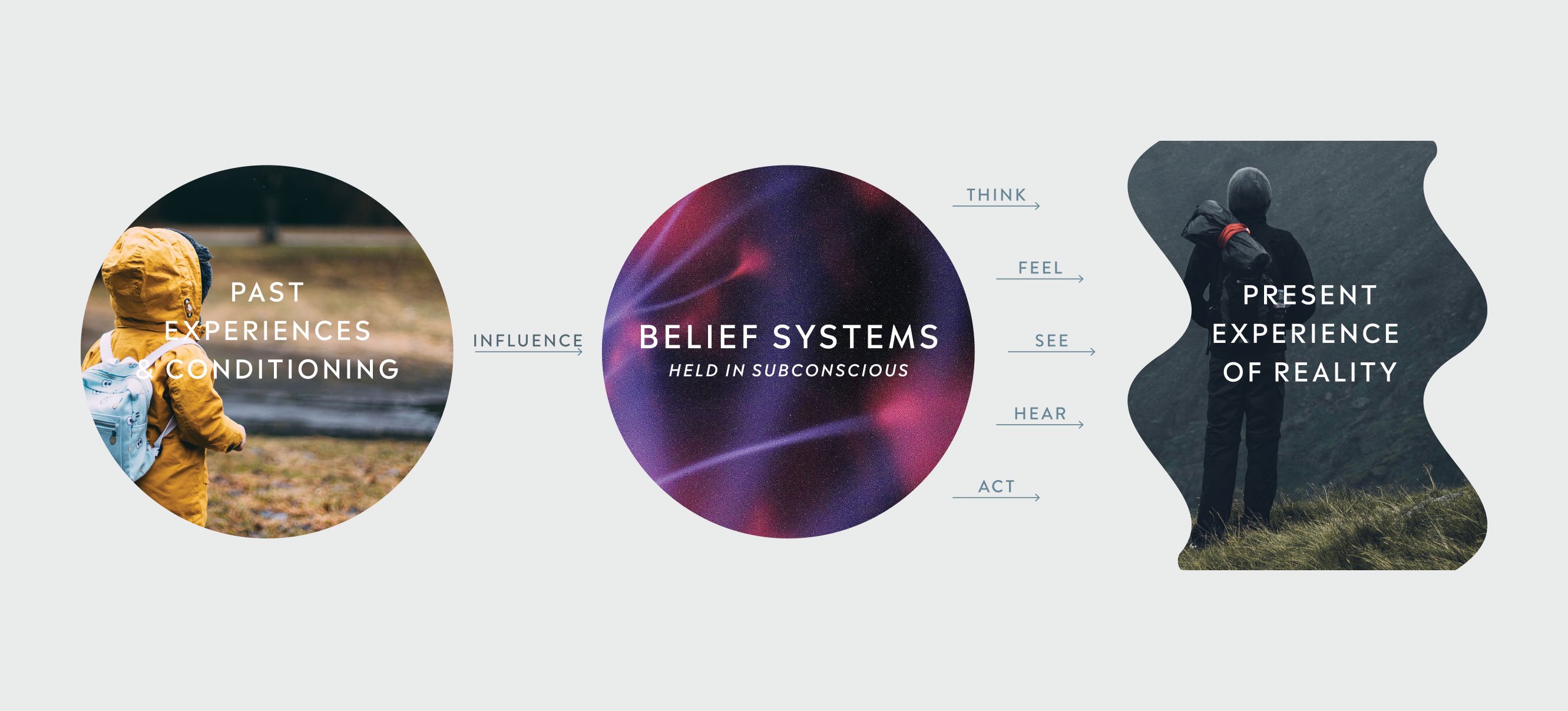We are a product of our past. Every experience we’ve ever had, good or bad, is imprinted within us, crystallising as the core beliefs, or “truths” we hold about who we are and how the world works. This is our conditioning and it is ‘stored’ in our subconscious mind.
Everything that’s happened to you right up to this very moment has moulded you into the unique human reading this sentence. In this way, our past directly influences the way we see, feel and act today. The way you behave in your relationships. What you choose to do - or not do.
And while that’s fine for the most part, what about the negative aspects of your life? Behaviour patterns we’d rather not repeat? Disabling emotions such as fear, anxiety and despair triggered by certain situations? Perhaps we have self-worth issues, or issues around money? The list is endless.
As an example, If you were neglected by your parent or caregiver in your formative childhood years, as an adult you might experience difficulties trusting and connecting with others.
So, how do we work with the past?
We cannot go back in time and ‘un-experience’ something but we can change how we feel about it, now.
The latest findings in neuroscience show us that the brain has an incredible propensity for change, and is constantly wiring and re-wiring nerural pathways according to the thoughts and behaviours that we regularly hold.
The most effective way to change how we think and feel is by accessing the place where we form our belief systems - the subconscious mind.

Until now, accessing the subconscious mind has been an elusive skill reserved for high-level meditators with years of practice. Yet trying to change the unfavourable end result of years of negative experiences in therapy - is just as difficult.
With QEC, however, we do just that. Read on to hear how QEC is able to work with belief systems at the subconscious level of mind.
Frequently asked questions
+-
How is QEC different from other talk therapies?
Traditional talk therapies such as counselling and psychotherapy work by exploring the environment factors (past and present) that could be causing your unhappiness. By unpacking these negative experiences, the hope is that a new level of awareness around the issue might be reached - a new way of seeing things that can bring about healing and closure. This process can take a long time - perhaps even years - for someone to make substantial shifts in thinking and behaviour, for the simple reason that the process engages the conscious part of the mind.
QEC works deeper, with the powerful ‘supercomputer’ that is the subconscious mind. It is here that we store our deepest beliefs, the ones that shape who we are and how we believe the world to be. Working with the subconscious allows for changes that are much more rapid and lasting. Using the neuroplasticity of the brain, QEC ‘rewires’ our neural pathways, freeing us from the limitations of our past.
+-
Clients report rapid, lasting changes. How can a life-long problem or habit simply disappear in a few short sessions?
The ‘speed’ with which QEC operates can be assigned to the fact that QEC uses the ‘supercomputer’ of the subconscious mind and the plasticity of the brain to create new neural pathways. Under the right conditions we can change the way we think and feel about something - and fundamentally change how we experience it and therefore behave.
On the surface, our world appears to work in a predictable, mechanistic way. Yet, when we get down to the basic building blocks of all matter at the subatomic level, everything is pure energy in a constant state of potential. We create our reality by communicating with this Quantum Field through our thoughts and feelings. Thoughts are electrical impulses, emotions are magnetic. The principles of Quantum physics show that the electromagnetic influence of the mind on our reality is powerful and immediate, and that when we change our thinking, we change our experience of the world.
+-
How would I know that my long-held beliefs have been changed?
Quite simply, you’ll think and feel differently about the problem. In fact, it helps to keep a record of the issues that you work through with your practitioner because revisiting the list at a later date might surprise you. Looking back, many people report finding it hard to remember ever having suffered with those issues.
+-
I don't have any “issues” as such but I feel that I’m not reaching my full potential. Can QEC help?
Fundamentally, ‘blocks’ to performance or creativity are self-imposed limitations. Most often, this is completely out of our conscious awareness. QEC is very effective in identifying the causes of our limitation - why we aren’t operating from a place of ‘flow’, at full capacity - and changing our thinking to align closer to our conscious goals. Whatever your performance goals in life - QEC is a simple, powerful tool to help you achieve them.

